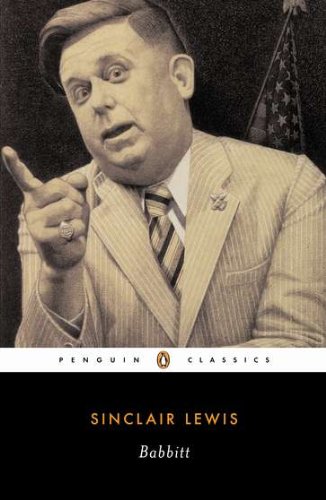The library will host a discussion of Babbitt by Sinclair Lewis on Monday, February 25 at 7:00 PM. This program is the second in the library's discussion series "The Roaring Twenties," and it will be free and open to the public. Copies of the book are available to borrow from the library.
Babbitt was published to critical and popular acclaim in 1922, selling over 140,000 copies in its first year. The novel is a satire of middle-class American boosterism and conformity, and the very name "Babbitt" became a byword for materialistic complacency and reflexive conventionality. It was one of the key works that made Sinclair Lewis the first American writer to be awarded the Nobel Prize for Literature.
The novel focuses on George F. Babbitt, a real estate broker in the fictional city of Zenith, a fast-growing Midwestern industrial metropolis. Professionally successful, he is a businessman who has unquestioningly embraced the received political, social, and religious values of his class and caste. For many readers at the time and since, Babbitt has served as an archetype of middle-class conformity, though Lewis felt that Babbitt himself was "the most grievous victim of his own militant dullness."
As a satiric portrait of America's rapid economic growth and industrialization in the 1920s, Babbitt offers an important understanding of his vibrant period in American history.
The "Roaring Twenties" series will continue on Monday, March 25 with a discussion of The Great Gatsby by F. Scott Fitzgerald.
